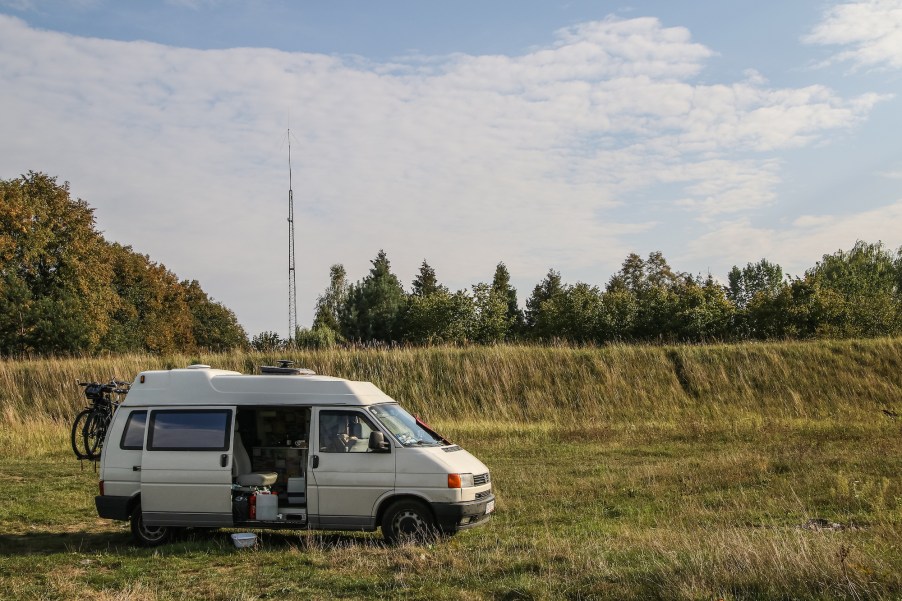
Is RV Boondocking Safe?
Camper sales have skyrocketed in the past year. That means people are taking to the roads in droves and looking for fun. Though many RVers stay close to home in well-maintained campgrounds, some adventurers are heeding the call of the wild and going boondocking.
But what is boondocking? And is it safe?
So that’s what RV boondocking is
For most people, renting or owning an RV means camping without all the hardships that come with it. They like electricity, soft beds, and Wi-Fi.
But what if you simply want to drive in and out, sleep in a comfortable bed, and have a locking door at night? Who needs Instagram? The lack of a flushing toilet doesn’t even phase you.
If the second description sounds like you, you’re interested in boondocking. According to To Go RV, “Boondocking in an RV is when you camp without hookups to electricity, water, or sewage.”
In other words, it’s for people who want to leave the modern world behind. Whether you’re looking for a lifestyle change or want to leave life’s complications behind for a bit, boondocking is a great way to get away from it all.
What you should know before boondocking
If boondocking sounds like fun to you, it just might be. But don’t rush out to your camper just yet. There are a few things you need to know before you ride off into the sunset.
The temperature in the area you plan to boondock is one of the first things you should check. The ideal temperature is between 40 to 70 degrees Fahrenheit. This will be comfortable enough that you can settle with extra blankets or a light sheet.
Also, check to make sure there haven’t been any major weather changes lately. There’s nothing worse than pulling into your favorite boondocking camp to find torrential rains washed it away.
If you want electricity, a generator or battery will work. But make sure they’re operating before you’re 100 miles from civilization.
Water and food are other must-haves. If you plan to live off the land, it can be a bit stressful if the food sources you thought would be available are no longer there. Filling your water tank and making sure your cupboards are full will help alleviate stress if things don’t turn out the way you imagined.
What’s that noise?
RELATED: Are Campgrounds and RV Parks Safe?
Safety is another big concern for anyone looking to go boondocking. It’s a valid concern, one you need to think about carefully before setting out.
If you’re worried about being robbed, the chances are lower than you might think. “Statistically speaking, you are much more likely to be a victim of theft or crime in general in your own home than in your RV,” Lippert reports. “In fact, if you search for RV crime statistics, you will be hard-pressed to find much of anything.”
Yes, theft still happens, but you can take a few steps to lower your chances. Keeping your RV locked when you’re away, using an alarm system, and parking where you have cell service will help make you less of a target.
Your biggest concern when boondocking should be wild animals. Lock up your food, don’t pet baby animals, and avoid close contact with bears.
These steps don’t guarantee your safety, of course, but they’ll go a long way toward protecting you and your loved ones. Plus, they’ll give you peace of mind, allowing you to enjoy your boondocking adventure.


